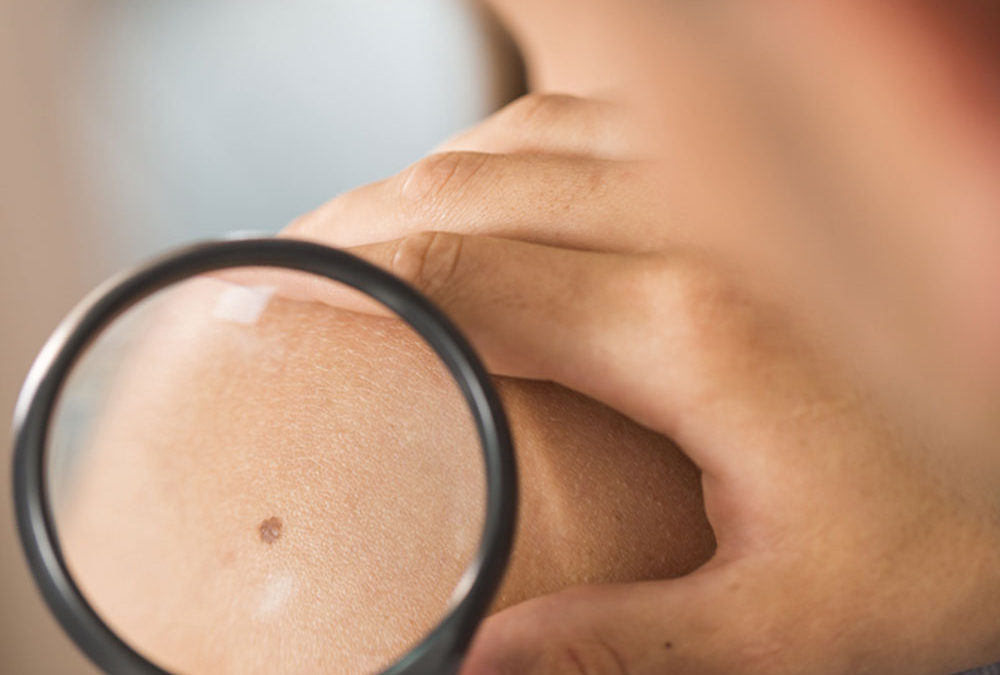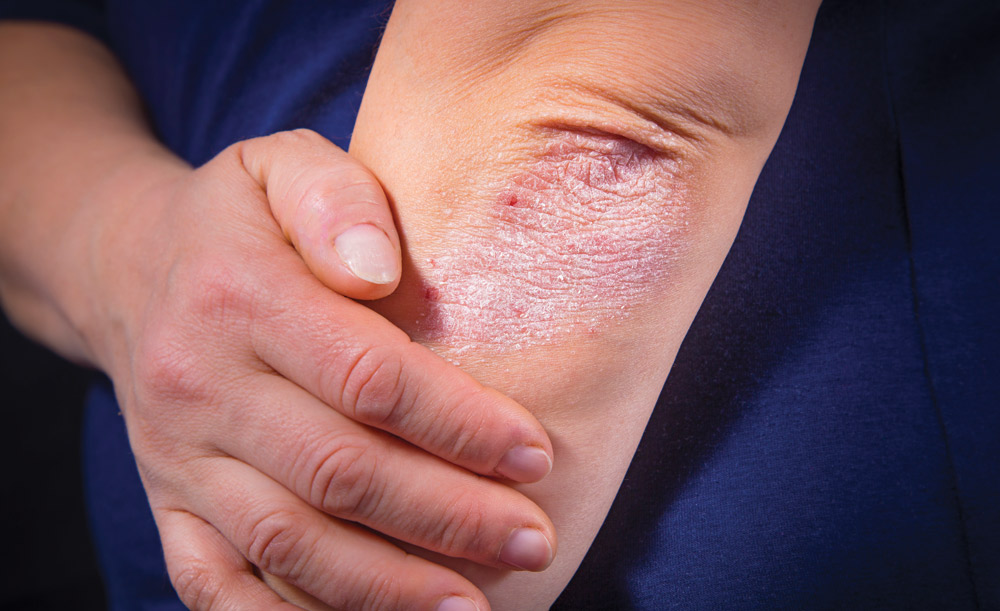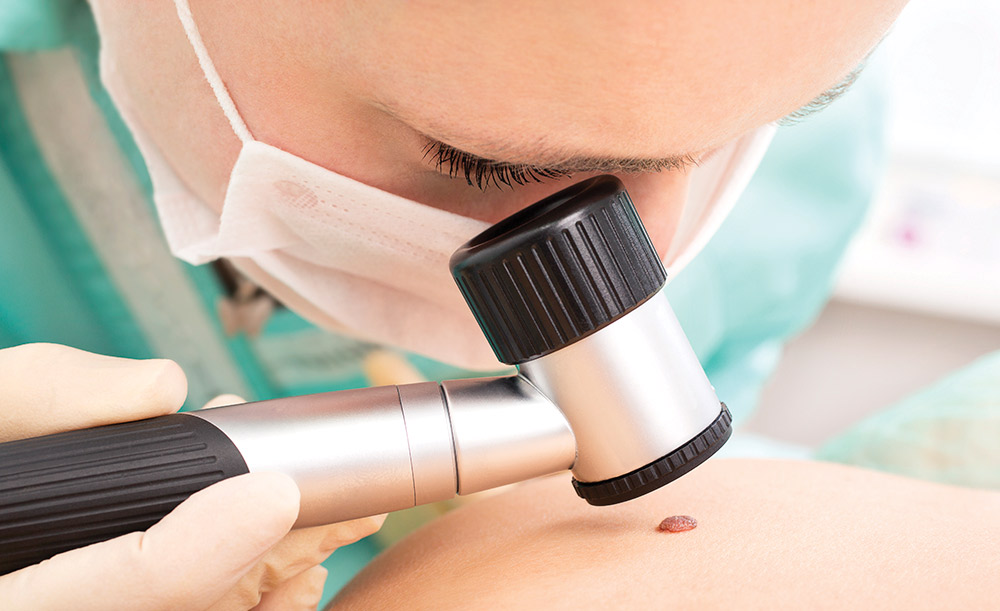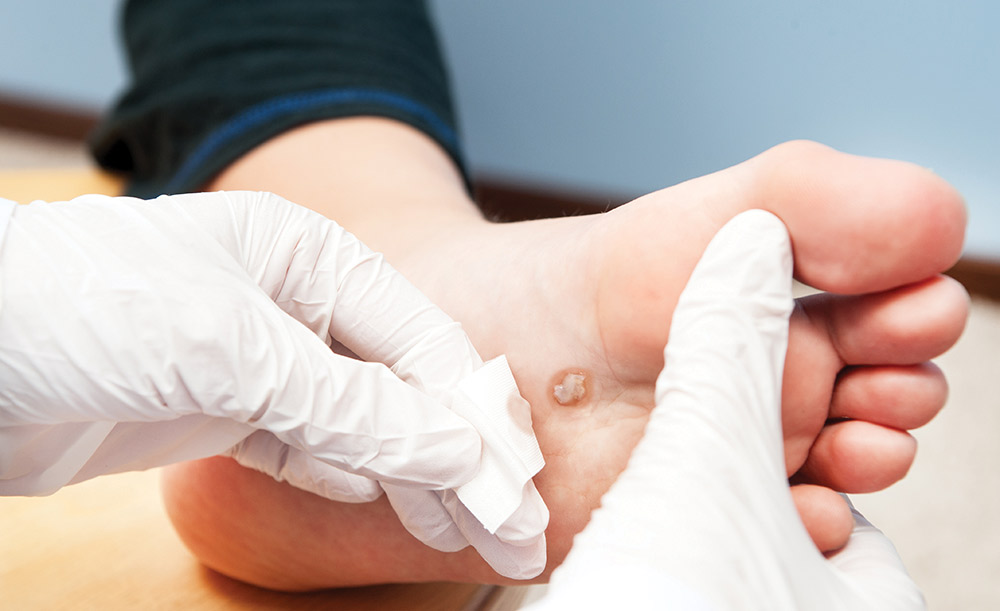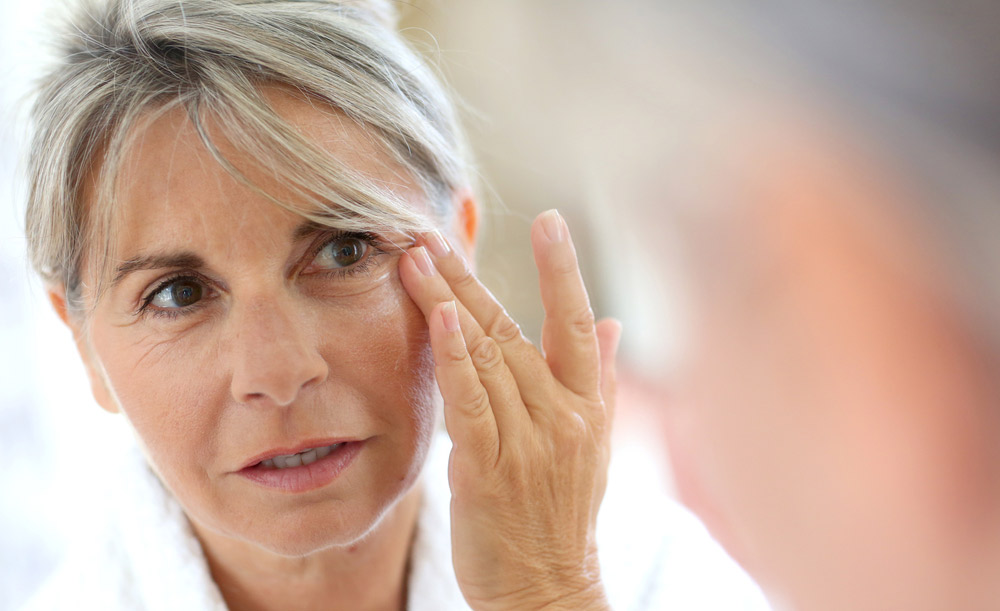Skin Cancer Reston
In most cases, skin cancer is caused by overexposure to the sun’s harmful UV rays. However, it is still possible to develop skin cancer on areas of the body that are not routinely exposed to the sun.
For this reason, it is extremely important to routinely examine your skin and note any new, changing, or suspicious moles or lesions. Taking a proactive approach aids in the swift diagnosis and treatment of skin cancer.
To learn more about diagnosing and treating skin cancer in its earliest stages, read on.
Diagnosing Skin Cancer
When it comes to diagnosing and treating skin cancer, early detection is critical. Accordingly, you should be aware of skin cancer warning signs and see your dermatologist immediately if you note any of the following:
- The appearance of a new mole after age 21
- A lesion that experiences changes in size, color, or texture
- A mole that has irregular or jagged borders
- A lesion that bleeds, is dry, has pus, or is scabbed
Treating Skin Cancer
Skin cancer treatment is usually dictated by the type of cancer – such as basal cell carcinoma, squamous cell carcinoma, or melanoma – and the stage of the cancer.
Cryosurgery is one way of treating skin cancer that is small and in stage one. It involves applying liquid nitrogen to the lesion in order to destroy cancerous cells.
Mohs Surgery seeks to remove the cancerous lesion and surrounding skin in order to achieve clear margins. During Mohs Surgery, the treatment area is numbed with a local anesthetic and then cut out of the skin and sent to pathology.
Chemotherapy may be recommended for cases of serious skin cancer that has spread to the lymphatic system.
Other skin cancer treatments include immunotherapy, photodynamic therapy, radiation treatment, and chemotherapy that is applied to the skin.
Learn More
To learn more about diagnosing and treating skin cancer, please contact our office today to schedule a comprehensive consultation with board-certified dermatologists Dr. Morgana Colombo or Dr. Teresa Nasabzadeh.

